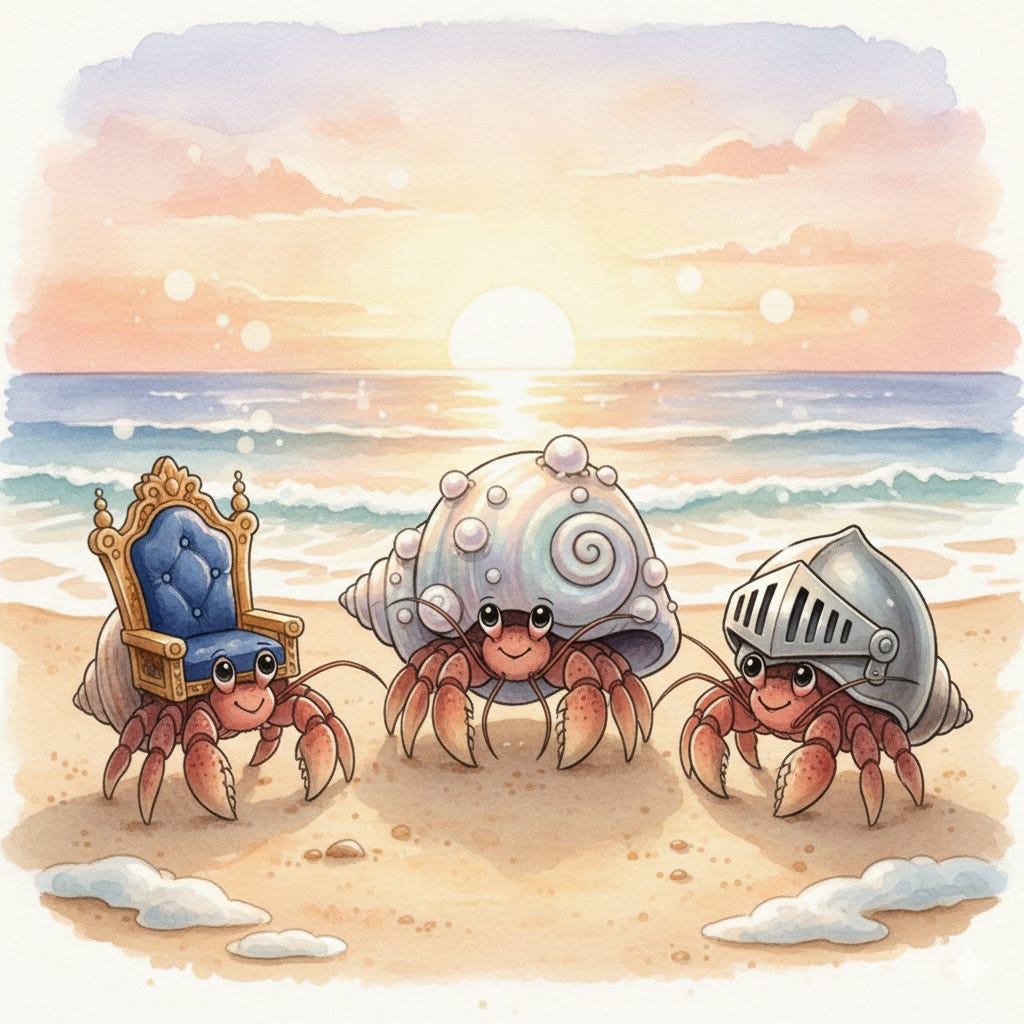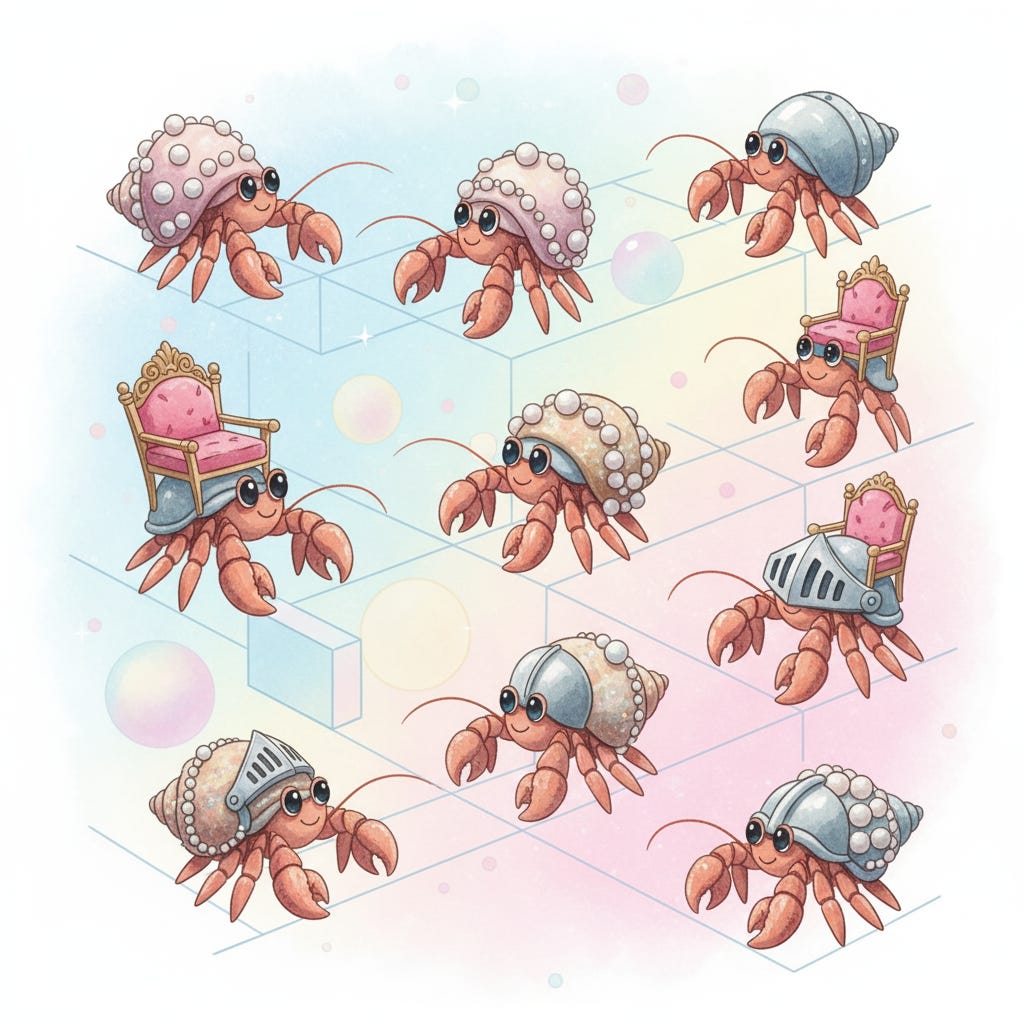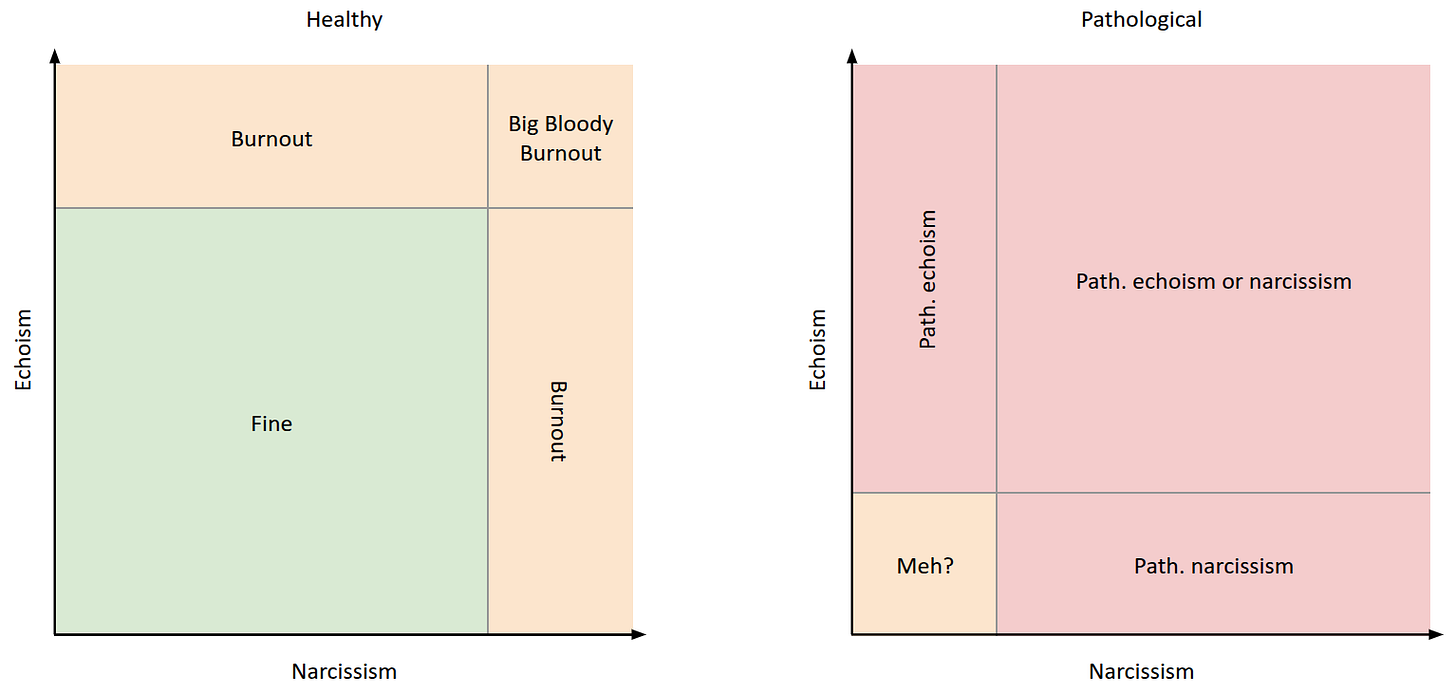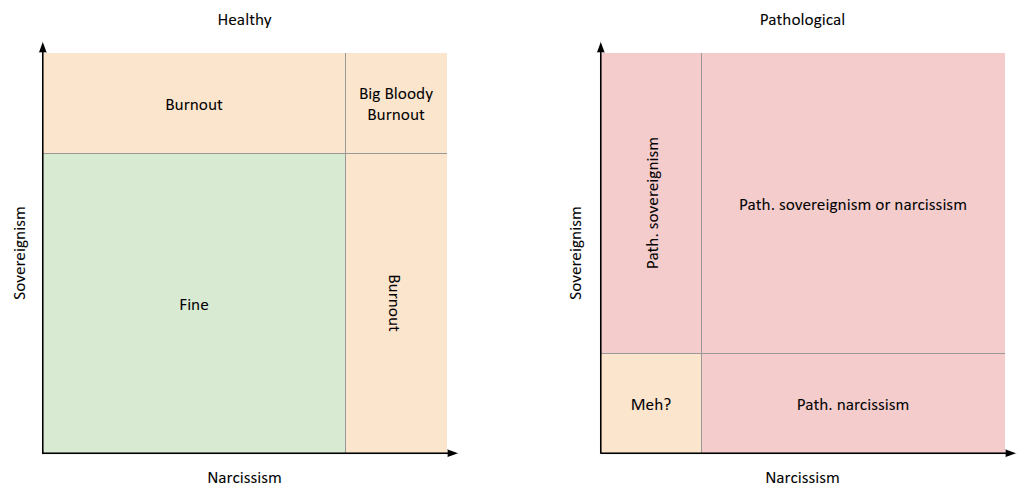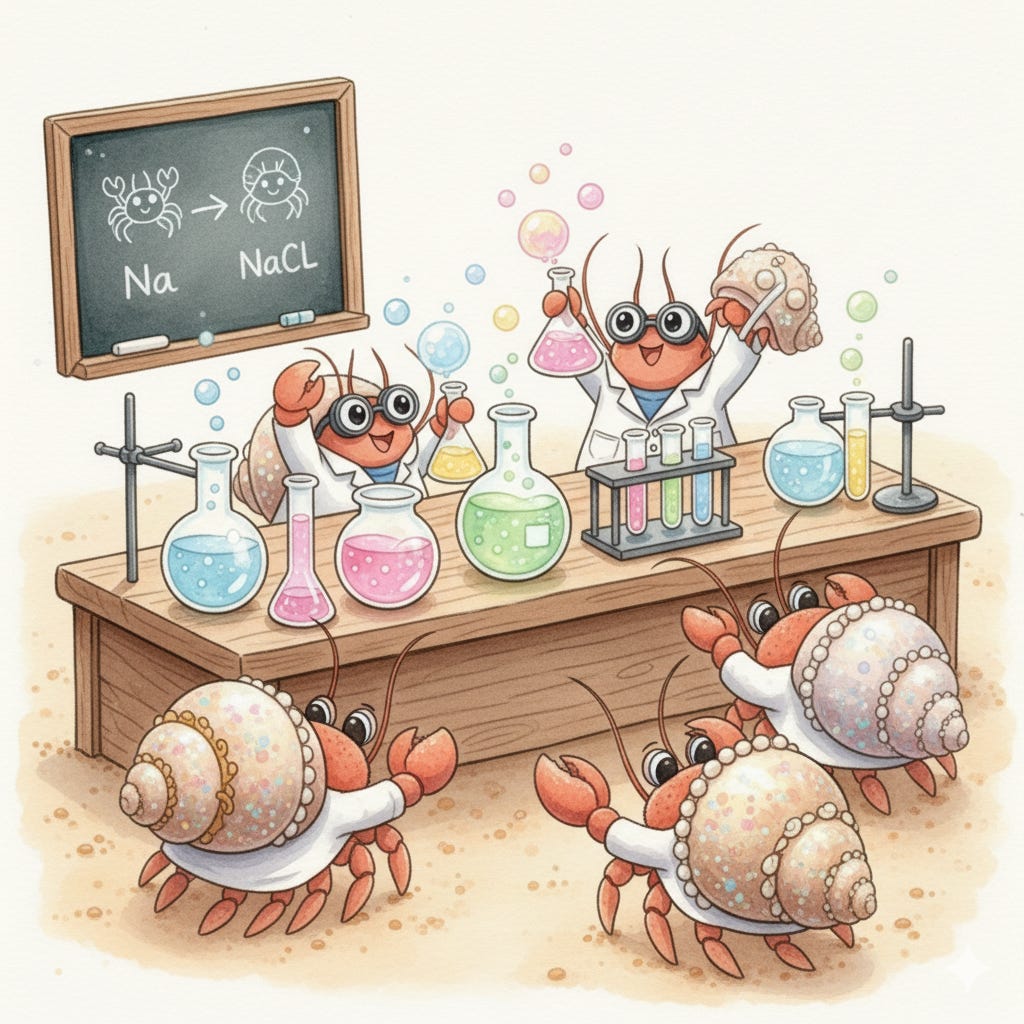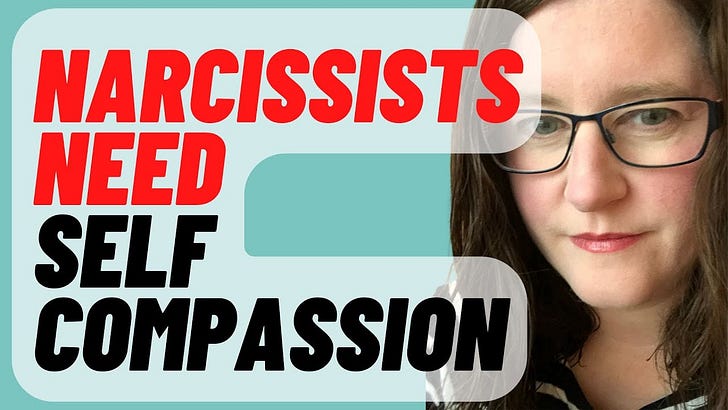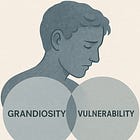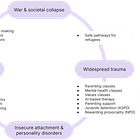Narcissism, Echoism, and Sovereignism: A 4-D Model of Personality
Are narcissism and echoism opposites? Where does sovereignism (“malignant narcissism lite”) come in? I argue they are kin, just as the primal terrors of being worthless, useless, and helpless are kin.
Introduction
Three terrors are key to understanding my model: People with pathological echoism have a fundamental fear of uselessness or purposelessness, people with pathological narcissism have a fundamental fear of worthlessness or unlovability, and people with sovereignism have a fundamental fear of being helplessly exposed to control and dominated.
Some of the italicized terms may be unclear.
The term echoism is somewhat established at this point (even though it is not yet a diagnostic label) for someone who forms a false self of being without personal preferences in an effort to continually prove their usefulness and thereby purpose in life in self-sacrificial service to another, a group, or all of society.
Narcissism, here, describes a defense against worthlessness through real (compensation) or collapsed (externalization) grandiosity.
Sovereignism is a term that I’m introducing as a less judgmental-sounding alternative to Otto Kernberg’s malignant narcissism but also with a somewhat more inclusive meaning.
My article on the narcissistic spectrum describes tiers 0–5 of different example presentations of pathological narcissism ordered by the robustness of the false self. Sovereignism greatly fortifies the false self and so comes in at tiers 4–5. It is the range between and including these tiers that I call sovereignism – the tiers where the central preoccupation of the person shifts from achievement to control.
Crucial for this shift is the ego-syntonic sadism (or Machiavellianism) but not the paranoia of what Otto Kernberg calls malignant narcissism. As such, it’s a wider category of presentations.
Critique of Dr. Malkin’s Model
In his excellent book Rethinking Narcissism, Dr. Craig Malkin presents a linear 11-point narcissism spectrum and augments it with a validated scale that maps to the spectrum, the Narcissism Spectrum Scale (NSS).
The range 0–3 he calls narcissism deficit or echoism; the range 4–6 is healthy narcissism; and the range 7–10 is extreme narcissism. The scale leaves the most extreme points to professional diagnoses.
I find the concept of echoism to be very interesting. There is also a third concept – my sovereignism – that I find similarly interesting. But my own mental model differs from Malkin’s.
First, note that the authors’ own validation of the NSS revealed some problems.
The interpretation of the scale is really the interpretation of three independent scales: echoism (“narcissism deficit”), healthy narcissism, and extreme narcissism. They interact in nonlinear ways, so, for example, if you score high on healthy narcissism, the result is invalid if you also score high on extreme narcissism. Complicated, but helpful.
But what is most remarkable is that they observed respondents who score high on echoism and extreme narcissism:
In rare instances, people score high on narcissism deficits and high on extreme narcissism. If your scores reflect that pattern, it likely means that you vacillate between extremes of feeling worthless and feeling superior. Even if you don’t say it, you might have impossibly grandiose dreams, usually about being in charge or showing people you’re better than they are.
…
That’s the hallmark of introverted narcissism. If you show that pattern, you’re highly narcissistic, but either introverted by nature or beaten down by a series of failures.
You’re at least around a 7 on the spectrum; higher if you scored 42 or above on EN. This pattern isn’t unusual if you feel superior to everyone in your mind, but the world refuses to confirm your opinion. You look like someone who lacks narcissism, but in reality, you probably cling to feeling special – and you’re not getting enough attention to feed your habit. People close to you will see the entitlement and arrogance, but your work colleagues probably see someone riddled with anxiety and self-doubt.
They say that this only happens in rare instances, but consider the items they used to measure extreme narcissism:
I find it easy to manipulate people.
I insist on getting the respect that’s due me.
I expect a great deal from other people.
I’ll never be satisfied until I get all that I deserve.
I secretly believe I’m better than most people.
I get extremely angry when criticized.
I get upset when people don’t notice how I look in public.
I’m apt to show off if I get the chance.
I have a strong will to power.
I’m great at a lot of things compared to most people.
Items 1–3 and 7–10 are straightforward grandiose/exploitative features. Items 4–6 make a haphazard attempt at capturing vulnerability, but don’t sound like self-report questions at all.
Item 4 might not be meant to capture vulnerability, but if it is, it should rather say something like, “I work so hard, and then people let me down and favor others.”
Item 5 uses “secretly,” but that’s not how self-deception works. Someone has to build a lot of insight before they become aware of the things that they “secretly” believe. Maybe, “I’m surrounded by people who keep slowing me down”?
Item 6 again presupposes incredible insight. How about, “It makes me livid when people give me feedback that I didn’t ask for,” or “People keep picking on me for no reason”?
Item 7 is just confusing for me. Do they mean “… when people, out in public, don’t notice how I look,” or “… when people don’t notice my public face”? In any case, it’s probably even anticorrelated with the vulnerable presentation.
Perhaps it would’ve been better to borrow items from the PNI, FFNI-SF, or MCNS instead. (Or the PNI or FFNI at least, since the FFNI-SF and MCNS also only came out in 2015, the same year they published the NSS.)
Given that even this greatly grandiosity-focused version of the narcissism subscale is not fully anticorrelated with the echoism scale, I wouldn’t be surprised if the echoism scale is positively correlated with the MCNS, which measures narcissistic vulnerability.
Note also that the PNI – a narcissism scale that also captures the vulnerable presentation well – contains a subscale “self-sacrificing self-enhancement” (SSSE), which is basically echoism.
SSSE has a decent positive correlation with all other subscales, though that with exploitativeness is a bit lackluster. But that is to be expected since those are almost opposite attitudes. The people I know who score close to the maximum on both dimensions take different attitudes toward different people or indulge their exploitativeness in harmless or even prosocial, playful ways.
Conservatively, my model assumes that the correlation between echoism and narcissism is roughly nil, though deep down I expect a positive correlation, maybe in the range of r = 0.2–0.5. I hope future research with test this prediction.
The correlation between narcissism and sovereignism is probably also positive. My friends with that presentation score extremely high on “exploitativeness” (EXP) and many other dimensions (though notably not on “contingent self-esteem”). The subform of “malignant narcissism” even has “narcissism” in its name.
Considering that even SSSE and EXP have a slight positive correlation, I think that even echoism and sovereignism are not strongly anticorrelated.
On that note, please bear in mind how messy even an r = 0.5 correlation can look!
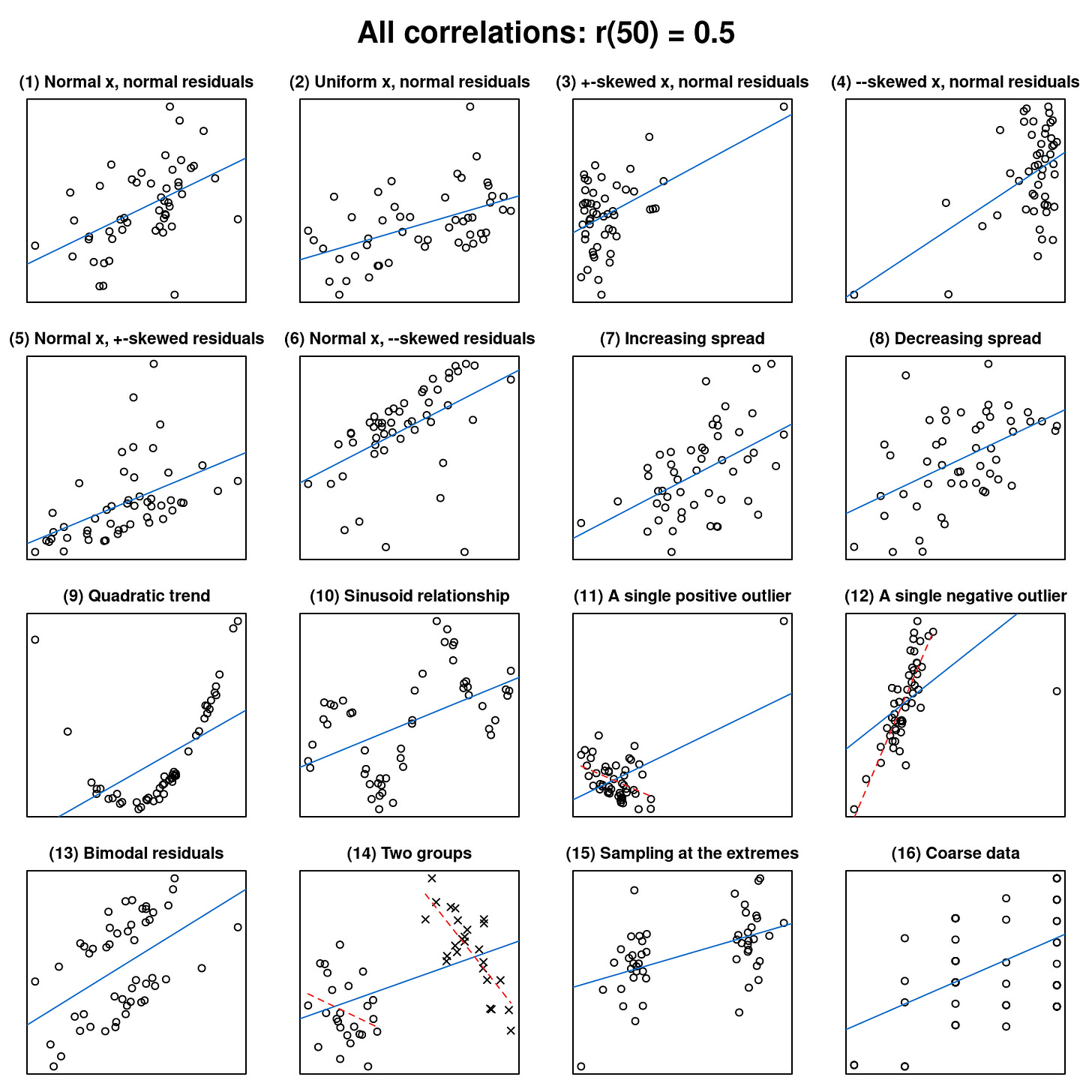
My Model
The Axes Echoism, Narcissism, and Sovereignism
My model assumes that we’re dealing with separate, uncorrelated dimensions. I’ll call them echoism, narcissism, and sovereignism, the terms I introduced above. Each diagram only shows one pairing to simplify the visualization.
Here is my attempt to compress these meanings of echoism, narcissism, and sovereignism in terms of perfectionism of certain values.
By perfectionism, I mean either actual perfectionism or, failing that, at least being less flawed than others or flawed, but it’s someone else’s or the world’s fault. In either case, this can be achieved though real perfection, avoidance, or self-deception.
Echoism:
General values: modesty, service, piety, purity, loyalty
Grandiose values: moral excellence, altruism
Vulnerable values: selflessness, sacrifice, invisibility, martyrdom
Narcissism:
General values: dignity, self-sufficiency, selectivity
Grandiose values: success, achievement, admiration, status, wealth, beauty, enlightenment, intelligence, excellence, prestige, sophistication, legacy, uniqueness, exceptionalism
Vulnerable values: insight, reserve, sanctuary, integrity, boundaries, solitude, nonconformity
Sovereignism:
General values: self-control, self-sufficiency
Grandiose values: power, control, domination
Vulnerable values: invulnerability (defense against hurt), impregnability (defense against intrusion), sanctuary, stoicism
The Axis Healthy vs. Pathological
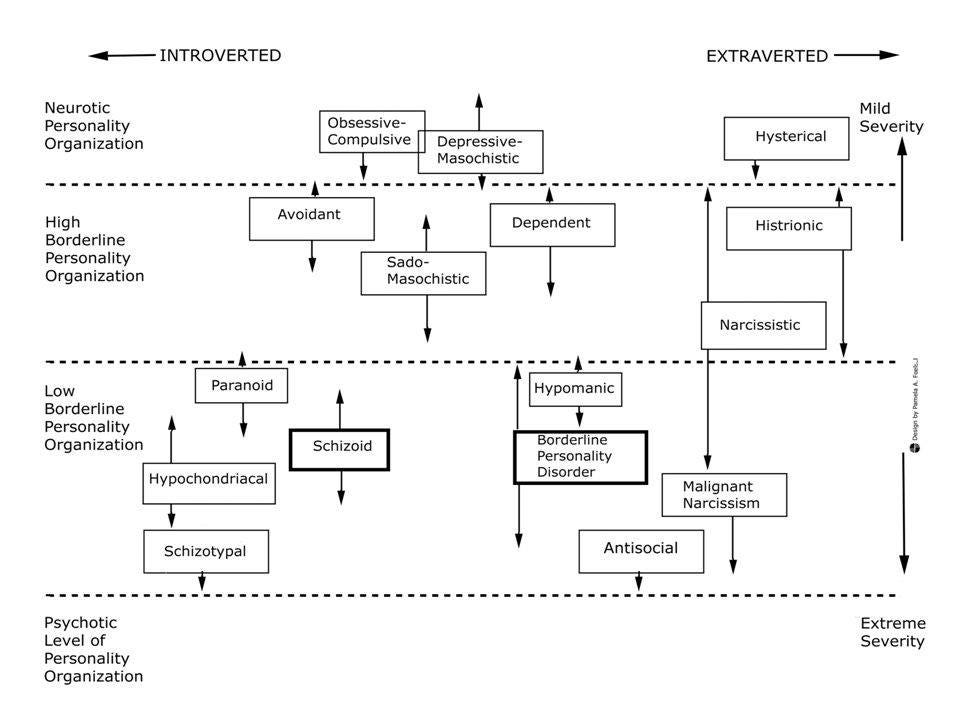
My distinction into healthy and pathological is mostly a simplification (for ease of visualization) of Otto Kernberg’s model of the psychotic, borderline, and neurotic (healthy) levels of personality organization. But more intense core shame – the painful experience of being unworthy of love or belonging, a weight, fear, blame, or disconnection – also contributes to the pathology, even on the neurotic level.
Features of lower levels of personality organization are identity diffusion, primitive defenses, and impaired reality-testing. The core shame drives the need for perfectionism and related pathological strivings. The borderline/psychotic distortions of reality and selfhood are, in part, how it is achieved. Instead of actual perfection, flaws are repressed (split off), get blamed on others, or are denied.
That’s the only place where the personality pathology comes in! In particular, I disagree with the characterization that there are quantities like echoism or narcissism or sovereignism that are okay at certain quantities but represent a personality pathology/disorder when they get more extreme.
When a perfectly healthy person becomes extremely obsessed with becoming special in some fashion, they may burn out (a different kind of pathology), give up and be bummed out (a different kind of pathology), but they won’t develop a personality disorder.
When a borderline-level person wants to become special in some fashion, they may develop a rigid false self organized around grandiosity, split off failures, and lose touch with authentic experience – it becomes a personality disorder.1
For comparison, there is such a thing as a healthy amount of salt that we can consume per day and there is an excessive amount. There is no such thing as a healthy amount of income vs. an excessive amount of income but its use makes it so. If you donate it to the Animal Charity Evaluators top charities, that’s healthy; if you hire assassins with it, that’s pathological.
Arguably, there’s the exception that if you don’t have any income, you can’t hire assassins (or donate), so the orthogonality of the dimensions is not completely clean, but thinking of them as orthogonal still strikes me as the best approximation.
Etiological Parallels
In my article on The Narcissistic Spectrum, I describe some possible childhood and adolescent traumas that can produce different forms of NPD (and mixed presentations that include NPD). I would argue that it is very similar traumas that cause echoism.
So does Dr. Malkin:
The key childhood experience that pushes children too high or too low on the spectrum is always the same: insecure love.
To settle at the center of the spectrum, children need to feel that no matter what they do – or don’t do – they can still count on the people who raise them to listen and offer comfort when they feel sad or lonely or scared. That’s the hallmark of secure love, and when children don’t receive it, they’ll shape their behavior to try to earn love in unhealthy ways, such as chasing after attention (narcissists) or keeping to the shadows (echoists).
Narcissists can be bred in several ways. Parents who seem to notice or celebrate their children only when they’re standing out – by becoming valedictorians or varsity league players or beauty queens – set them up to scramble after accolades and approval for the rest of their lives. Extroverts with this upbringing are likely to join the group of narcissists who initially seem charming but turn nasty upon closer acquaintance; introverts, on the other hand, may become brittle adults, seething or withdrawing when people don’t pay rapt attention to everything they say.
…
In contrast, parents who seem chronically emotionally fragile – anxious or angry or depressed – may cause their children to slip a few notches to the left on the spectrum. The children learn that the only way to earn love is to make as little impact as possible on the people around them. I can’t possibly ask my parents for any more – they might cry or scream – but maybe if I ask for very little, they’ll love me. Left-leaning, temperamentally sensitive children, naturally attuned to others, may be at the greatest risk here. A similar result occurs when parents seem happy or fulfilled only when their children praise, flatter, or comfort them. An example might be a mother who needs her child to tell her she is pretty or a good parent. Such “parentified children” learn to echo and mirror their parents’ every need or desire, burying their own needs completely.
Those just seem like two different kinds of persecutory introjects at work forcing children to develop different kinds of false selves. (I’d love to see a collection of the grandiose fantasies of echoists!)
Compound Personality Styles/Disorders
Am I proposing two completely new personality styles here? Maybe, maybe not!
One way I like to think of it is how you can combine a reactive metal called sodium with a toxic gas called chlorine and you get yummy salt!
I imagine that’s how pathological narcissism, sadism, and antisocial traits react to form sovereignism – something very different from all of them.
Here are a few possibilities for what the reactants of echoism might be:
Narcissistic + Dependent Personality
“I defend against unworthiness of love by becoming indispensable instead.” (Focus on attachment.)
The narcissistic personality provides the aspects of social comparison, superiority, self-sufficiency, dignity, striving for excellence, and defense against feeling unworthy of love.
The dependent personality provides the attachment preoccupation, but the NPD turns the helplessness on its head: instead of acting helpless to bind oneself to a helper, the person tries to become the helper to bind someone else to them. Being needed as a surrogate for love. A motherly kind of superiority combined with a butler-like servitude.
Narcissistic Personality + Preoccupied Attachment
“I defend against unworthiness of love by becoming indispensable instead.” (Focus on attachment.)
The narcissistic personality again provides the aspects of social comparison, superiority, self-sufficiency, dignity, striving for excellence, and defense against feeling unworthy of love.
But avoidant attachment (be it pure avoidant attachment or disorganized attachment) is unavailable and preoccupied attachment is high. Hence the person tries to bind the other to them. Being needed as a surrogate for love. A motherly kind of superiority hidden behind a butler-like servitude.
Narcissistic + Masochistic + Depressive Personality
“I defend against unworthiness of love by becoming indispensable by submitting and denying myself.” (Focus on guilt.)
The narcissistic personality again provides the aspects of social comparison, superiority, self-sufficiency, dignity, striving for excellence, and defense against feeling unworthy of love.
The masochistic personality proactively (“self-defeatingly”) submits and assumes the butler-like stance of servitude to bind the other person to them (being needed as surrogate for love) but also brands the person’s own needs as illegitimate.
The depressive personality provides the internalization of anger (elimination of self-assertion) and guilt/indebtedness as driver.
Obsessive-Compulsive Personality + Anna Freud’s Defense of Altruistic Surrender
“Selfishness is wrong and I renounce it in favor of a life of service.” (Focus on rules and ethics.)
The obsessive-compulsive personality provides the rigid moral perfectionism, preoccupation around rules of correct behavior, splitting, renunciation of any selfishness.
The altruistic surrender provides the renunciation of personal goals or needs, living vicariously through others, and finding meaning through others’ achievements.
Avoidant + Dependent Personality2
“I feel obviously rotten but I need you, so I make myself indispensable.” (Focus on shame.)
The avoidant personality provides the feelings of being inadequate and unworthy of love (much like NPD but defended against with avoidance only).
The dependent personality provides the attachment preoccupation that is achieved through making the other depend on you.
Borderline + Dependent Personality
“I have no self except insofar as your needs shape one.” (Focus on identity diffusion.)
The borderline personality provides the absence of a stable identity.
The dependent personality provides the attachment preoccupation that induces an identity based on the expectations of the other.
My guess is that there may be several variations on the theme of echoism. I mostly resonate with NPD + DPD, NPD + preoccupied attachment, and OCPD + altruistic surrender, but I’d be curious what other echoists resonate with!
All in all, I prefer to think of echoism as such a compound PD: It’s more parsimonious to explain new concepts in terms of existing ones, it fits well into how the PDM-2 diagnostic system defines personalities in what it calls the p-axis, and since there seem to be several plausible forms of echoism, using only one term for all of them would hide important distinctions.
Pathological Forms
Echoism
Another question readers may ask themselves is what pathological echoism looks like. I can think of a few possibilities:
The counterproductive savior (the video above), whose reality testing is so bad that they don’t realize that they’re not helping or are doing harm.
The person who chases ever new people who they can help, because they feel worthless within hours if they don’t.
The person who stays in an exploitative relationship for years, because they almost die of shame whenever they even think of breaking their undying loyalty.
The person who feels safe in a relationship only when they’ve done so much for the partner that the partner is clearly indebted to them, because that debt has to offset the imagined debt of their partner deigning to love someone as wretched as them.
The person who proudly works themselves to death at a charity, because they value their own life as much as someone else’s and someone else is dying.
The person who can never feel out a personal preference when asked, because they’ve repressed them as perfectly as others repress their remorse.
The person who will dedicate their life to some religion or cult, because they’ve been told by an authority that its doctrine is right, and it never even crosses their mind that the authority might’ve been wrong or lying.
The person who’s suicidal but would rather die than to book a therapy appointment, because they can’t bear risking that it might be immodest of them to think that they deserve better than to suffer.
The person who has an identity crisis when they find out about moral antirealism, because it implies that the moral excellence that they pinned all their hopes for salvation on is in the eye of the beholder.
Narcissism
Similar examples for our good-old narcissism:
The person who keeps firing good employees because the person has to externalize the blame for bad decisions onto those employees because it feels like making a mistake would expose an infernal wretchedness worse than death.
The person who becomes suicidal when passed over for promotion, because they thought they were wretched but at least better than their colleagues, but without that safety net there’s no end to how far into wretchedness they fall.
The person who can’t show up for a job on time, because it would feel like admitting that they depend on the job, that it’s not beneath them, and then their feelings of disgust for the job would become feelings of disgust for themselves.
The person who rage-quits relationships when not consistently admired, because it feels like the partner masqueraded as perfect for them and tricked them when really that was the idealization of the partner.
The person whose self-worth collapses entirely when their looks fade, because what had kept them alive is that they could become a famous fashion model any day and were just waiting for the right time.
Sovereignism
And finally examples for sovereignism:
The person who plays games on people that land them in prison, ruin their marriages, lose them their jobs, etc., because it’s fun to control their lives so fully.
The person who humiliates people publicly in regular intervals to deter any attacks.
The person who continues being successful at venture capital fundraising only because all the VC who got burned don’t warn their competitors, and because the court cases can be drawn out many years.
The person who builds a bunker under their house, builds walls and barbed-wire fences all around, hoards food, guns, and emergency supplies, and waits for the self-destruction of society.
The person who retreats into a post-apocalyptic fantasy world where they are the last surviving human until eventually they die of a drug overdose in the real world.
Those friends of mine who are a fricking menace in traffic!
Combinations
Finally, combinations of echoism, narcissism, and sovereignism may be interesting to investigate.
Someone who is high in narcissism and sovereignism might behave in sadistic, antisocial ways, but might, in other contexts, also be driven by competition for regular success and admiration.
Someone who is high in echoism and narcissism might resemble the compound presentations above that contain traits of NPD and might find safety in relationships in creating an indebtedness to offset their own imagined indebtedness.
Someone high in echoism and sovereignism might find pleasure in manipulating others towards what they think is for the targets own good, like an overbearing but well-intentioned mother. Or they’ll be consistently kind to people but do it with the mindset of tricking their targets into liking them.
Conclusion
In short, I argue that echoism, narcissism, and sovereignism (as defined above) are personality styles that are not mutually exclusive or opposites but can co-occur. Perhaps they are even positively correlated.
Echoism and sovereignism are most conveniently thought of as compound personality styles that combine some (not all) features of other more fundamental personality styles.
Finally, all of them can be healthy or pathological (in the sense of a personality disorder) based on the intensity of the core shame they defend against and the level of personality organization but by and large not the extremity of the personality style.
Recognizing this shared structure – or, for some compound formulations, the differences in structure – suggests treatment approaches that would be nonobvious if the presentation is simply considered idiosyncratic or an “other specified personality disorder” without further modifiers.
Someone with echoism might not need exposure and response prevention (ERP) therapy or SSRIs for OCD because they self-punish for failing to predict an expectation, but might benefit more from mentalization-based treatment to discover their own preferences.
The move away from the assumption of strongly anticorrelated echoism and narcissism can help diagnosticians not overlook narcissistic traits in patients who present mostly as suffering from echoism.
It used to be thought that autism and ADHD are mutually exclusive, which led to many missed diagnoses and messy studies, because they actually co-occur at high rates. We can still stop that trend for echoism and narcissism.
Further research is needed to establish whether there are different types of echoism and to develop scales to distinguish them.
Scales that discriminate between (what I call) no-self psychopathy and sovereignism would be useful too.
Previous Installments on Narcissism
Sometimes I privately wonder how many people are pathological in the sense that they have borderline organization but have no identifiable personality disorder and hence fly under the radar.
I should note that I’m a bit skeptical whether AvPD is really fundamental or whether it’s just something like the vulnerable presentation of NPD at the edge to the neurotic level, and hence without access to certain primitive defenses like projection and with good-enough reality testing but with impaired self-mentalization.


